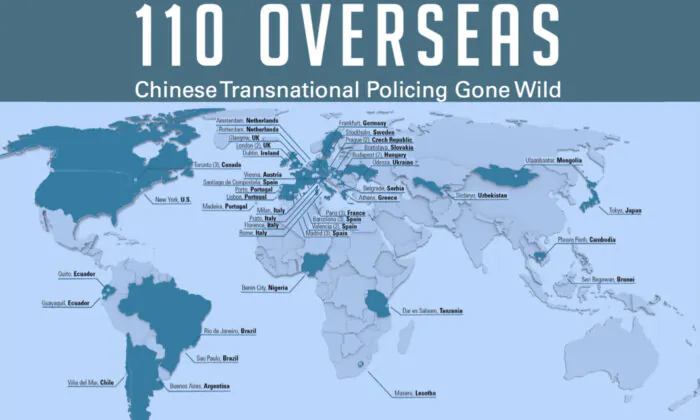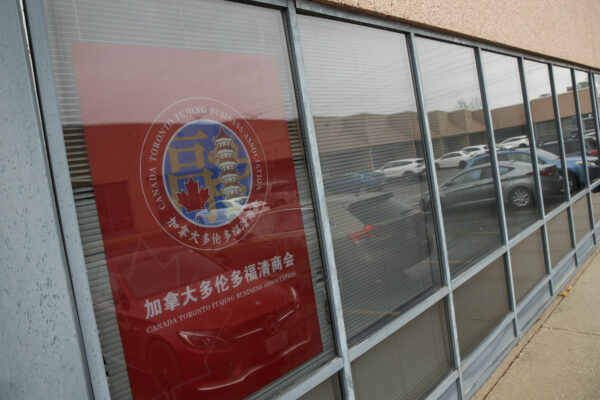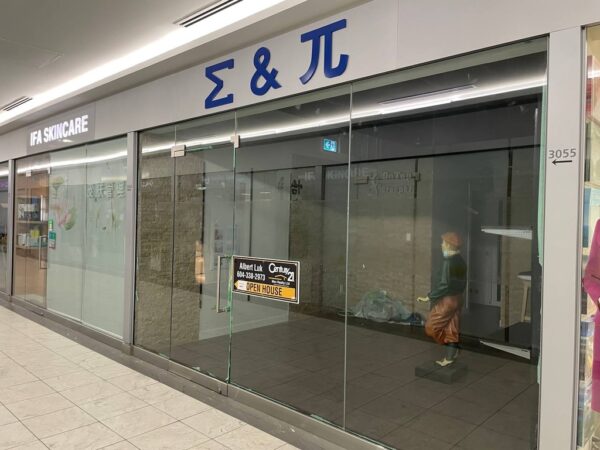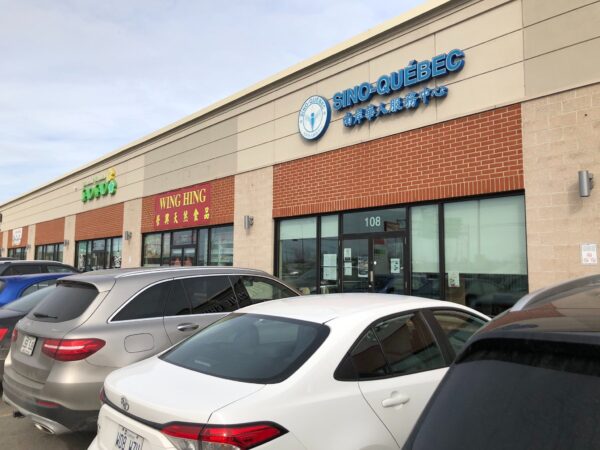
While testifying before the Commons Procedure and House Affairs Committee (PROC) in April, Public Safety Minister Marco Mendicino said the RCMP have taken “decisive action to shut down the so-called police stations” operating covertly on Canadian soil.
But when asked about that statement during an interview with CTV’s “Question Period” on May 14, the minister backtracked, saying that “the RCMP have taken concrete action to disrupt any foreign interference in relation to those so-called police stations.”
Here’s a rundown on the Chinese police stations in Canada that are known about so far.
Ontario
There are three locations in the Greater Toronto Area suspected to be secret Chinese police stations. The specific addresses of these locations were open-source information published online in a list of 30 overseas police stations operated by the Public Security Bureau of Fuzhou City, in China’s Fujian Province.
The locations have been identified as a convenience store on Warden Ave. in Scarborough, a residential home in Markham, and two units in a building in Markham that also serves as the headquarters of a Chinese business organization, the Canada Toronto Fuqing Business Association (CTFQBA).
 A building in a business park in Markham, Ont., is seen on Oct. 31, 2022, one of three locations in the Greater Toronto Area identified by Spain-based human rights group Safeguard Defenders as being among the sites of at least 54 unofficial police stations allegedly run by police bureaus in China. The Royal Canadian Mounted Police is investigating “reports of criminal activity” related to these unofficial police stations. (The Canadian Press/Cole Burston)
A building in a business park in Markham, Ont., is seen on Oct. 31, 2022, one of three locations in the Greater Toronto Area identified by Spain-based human rights group Safeguard Defenders as being among the sites of at least 54 unofficial police stations allegedly run by police bureaus in China. The Royal Canadian Mounted Police is investigating “reports of criminal activity” related to these unofficial police stations. (The Canadian Press/Cole Burston)
CTFQBA says on its website that it operates “under the guidance” of a number of Chinese and Fujianese government organizations, including a municipal committee of the United Front Work Department, which is the Chinese regime’s primary foreign interference tool, according to studies cited by Public Safety Canada.
The Epoch Times reached out to CTFQBA for comment, but didn’t hear back.
In February, then-RCMP Commissioner Brenda Lucki told the House of Commons Special Committee on the Canada–People’s Republic of China Relationship that uniformed officers in marked police cars have been sent to the three police stations in Toronto and one in Vancouver to disrupt their operations.
The RCMP deputy commissioner of federal policing, Michael Duheme, told PROC in March that the activities at those locations have ceased.
British Columbia
On Dec. 10, 2022, the RCMP Integrated National Security Enforcement Team, which is leading the investigation into the Chinese police stations, reportedly paid a visit to a building in Richmond, B.C., that currently serves as the headquarters of the Wenzhou Friendship Society (WFS), a non-profit group.
Several protests, launched by residents concerned about Chinese interference in Canada, have been held outside of the WFS in recent months. Some protesters told The Epoch Times that they long suspected the activities at the building located at 4266 Hazelbridge Way, noting that the organization has voiced support for Beijing and the ruling Chinese Communist Party (CCP). A director of the group has denied any affiliation with the police stations in an interview with Global News, though he acknowledged that the RCMP has visited the WFS.
A May 2021 article posted on WFS’s website, whose Chinese-language headline reads “The Party calls, overseas Chinese respond,” describes how one of its executive vice-presidents attended an event in China marking the centenary of the CCP’s establishment. The WFS website has now been removed entirely.
In February, The Epoch Times reported on another location in B.C. whose address appeared in a list of 29 Chinese police outposts that are operated by a police jurisdiction in China’s Nantong City, Jiangsu Province. The location is a store in a Richmond shopping mall and a phone number—also provided on that list—matches the contact number of the B.C.-based Canadian Association of Nantong Merchants Abroad.
Victor Chen, who was listed as the vice-president on the association’s website, previously confirmed the phone number belongs to the group’s president, Zhou Yuan. Chen, however, declined to comment on the issue of the Chinese police station. The Association’s website has now been removed.
The RCMP previously told The Epoch Times that investigation remains ongoing, and declined to provide details about this location in B.C.
 The unit listed by Nantong Public Security as an overseas service station, inside Aberdeen Centre in Richmond, B.C., on Jan. 13, 2023. (Iris Liang/The Epoch Times)Quebec
The unit listed by Nantong Public Security as an overseas service station, inside Aberdeen Centre in Richmond, B.C., on Jan. 13, 2023. (Iris Liang/The Epoch Times)Quebec
In March, the Quebec RCMP confirmed that it is investigating two locations in the province suspected to be secret Chinese police stations.
The two locations were identified as the Chinese Family Service of Greater Montreal, in the city’s Chinatown neighbourhood, and the South Shore Sino-Québec Center, a community organization in Brossard. Both centres have been operating for several decades, and have provided multifaceted services to Chinese and Asian communities.
RCMP Sergeant Charles Poirier said in a March 13 statement that the investigation was initiated after the police received at least “15 serious tips” in relation to the two locations in Montreal and Brossard.
Following media reports about the RCMP investigations, the Quebec Ministry of Immigration said it has cut funding to the two groups, while a spokesperson has said that an audit will look into whether the organizations have respected their obligations with regard to programs to integrate newly arrived immigrants into Canada.
 The Sino-Quebec Center in Brossard, Quebec, is seen on March 9, 2023. RCMP said it’s investigating this location, along with the Chinese Family Service of Greater Montreal, which are allegedly clandestine overseas Chinese police service stations. (Noé Chartier/The Epoch Times)
The Sino-Quebec Center in Brossard, Quebec, is seen on March 9, 2023. RCMP said it’s investigating this location, along with the Chinese Family Service of Greater Montreal, which are allegedly clandestine overseas Chinese police service stations. (Noé Chartier/The Epoch Times)
In a joint statement, published April 28, the two Quebec community groups said they are continuing to operate normally, which contradicted Mendicino’s claim before the committee a day earlier that the Chinese police stations have been shut down.
‘Long-Arm Policing Overseas’
The three Toronto-area locations were the first overseas Chinese police stations made known to Canadians following media reports about a September 2022 report by the Spain-based human rights NGO Safeguard Defenders. A follow-up report in December further identified two locations in B.C.
Safeguard Defenders told The Epoch Times in a previous interview that its reports are part of an ongoing effort to monitor Beijing’s growing global transnational repression. Founder and director Peter Dahlin said it came on the heels of another report by his organization, titled “Involuntary Returns—report exposes long-arm policing overseas.”
According to a report in January 2022—the first of the series of reports on the issue—Safeguard Defenders said the Chinese regime claimed in December 2021 that its intelligence operations, dubbed “Sky Net” and “Fox Hunt,” have successfully brought some 10,000 “fugitives” back to China from around the globe since 2014. The operations were launched as part of Chinese leader Xi Jinping’s anti-corruption campaign.
But according to Safeguard Defender’s September 2022 report, the so-called overseas Chinese police “service stations,” also sometimes called “110 Overseas” after the Chinese national police emergency phone number, have enhanced the Chinese operation of involuntary return of its nationals living abroad. Chinese authorities have claimed that from April 2021 to July 2022, 230,000 nationals were “persuaded to return” to face criminal proceedings in China, the report said.
The NGO warned that some of those police stations have also engaged in the intimidation and even kidnapping of Chinese dissidents. The Chinese authorities have denied the allegations, saying the unofficial police stations provide services to Chinese nationals living abroad, such as helping them renew their driver licences.
Noé Chartier and Peter Wilson contributed to this report